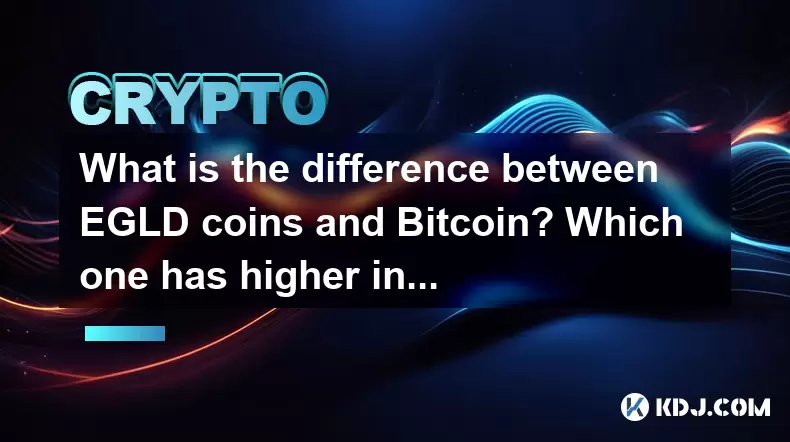-
 Bitcoin
Bitcoin $120300
1.41% -
 Ethereum
Ethereum $4296
2.75% -
 XRP
XRP $3.220
1.46% -
 Tether USDt
Tether USDt $0.9997
-0.04% -
 BNB
BNB $801.6
0.14% -
 Solana
Solana $179.9
0.22% -
 USDC
USDC $0.9998
-0.01% -
 Dogecoin
Dogecoin $0.2302
-0.24% -
 TRON
TRON $0.3405
-0.39% -
 Cardano
Cardano $0.7965
0.53% -
 Hyperliquid
Hyperliquid $44.80
2.57% -
 Chainlink
Chainlink $21.95
2.94% -
 Stellar
Stellar $0.4438
1.68% -
 Sui
Sui $3.767
-1.42% -
 Bitcoin Cash
Bitcoin Cash $584.4
3.24% -
 Hedera
Hedera $0.2554
-0.59% -
 Ethena USDe
Ethena USDe $1.001
-0.02% -
 Avalanche
Avalanche $23.57
0.00% -
 Litecoin
Litecoin $126.6
4.64% -
 Toncoin
Toncoin $3.339
0.94% -
 UNUS SED LEO
UNUS SED LEO $9.001
-0.49% -
 Shiba Inu
Shiba Inu $0.00001320
-0.92% -
 Uniswap
Uniswap $10.84
3.36% -
 Polkadot
Polkadot $3.945
-1.39% -
 Cronos
Cronos $0.1663
4.77% -
 Ethena
Ethena $0.8136
8.48% -
 Dai
Dai $0.0000
0.00% -
 Bitget Token
Bitget Token $4.391
-0.51% -
 Monero
Monero $268.0
0.80% -
 Pepe
Pepe $0.00001169
-1.57%
What is the difference between EGLD coins and Bitcoin? Which one has higher investment value?
EGLD uses Secure Proof of Stake for faster, eco-friendly transactions, while Bitcoin's Proof of Work is energy-intensive but secure; both have unique ecosystems and investment potentials.
May 23, 2025 at 05:14 am

EGLD, also known as Elrond, and Bitcoin are two prominent cryptocurrencies in the digital asset space, each with unique features and purposes. Understanding the differences between them can help investors make informed decisions about which cryptocurrency might offer higher investment value. In this article, we will delve into the technical aspects, use cases, and market performance of both EGLD and Bitcoin to provide a comprehensive comparison.
Technical Architecture and Consensus Mechanism
EGLD operates on the Elrond network, which is designed to enhance scalability and efficiency in blockchain transactions. The Elrond network uses a unique consensus mechanism called Secure Proof of Stake (SPoS). This mechanism allows for a high number of validators to participate in the network, increasing decentralization and security. The SPoS system is designed to process transactions at a much faster rate than traditional blockchains, with the capability to handle up to 15,000 transactions per second (TPS).
On the other hand, Bitcoin uses a Proof of Work (PoW) consensus mechanism, which requires miners to solve complex mathematical problems to validate transactions and add them to the blockchain. This process is energy-intensive and can lead to slower transaction times, with Bitcoin capable of processing around 7 transactions per second. While PoW has been effective in securing the Bitcoin network, it is often criticized for its environmental impact due to the high energy consumption required for mining.
Use Cases and Ecosystem
EGLD is designed to be a versatile cryptocurrency that powers the Elrond ecosystem. The Elrond network supports a wide range of applications, including decentralized finance (DeFi), non-fungible tokens (NFTs), and enterprise solutions. The native token, EGLD, is used for transaction fees, staking, and governance within the network. The Elrond ecosystem also includes Maiar, a decentralized exchange and wallet, which allows users to trade and manage their digital assets seamlessly.
In contrast, Bitcoin is primarily seen as a store of value and a digital form of money. It was created to serve as an alternative to traditional financial systems, offering a decentralized and censorship-resistant form of currency. Bitcoin's use cases are more limited compared to EGLD, focusing mainly on peer-to-peer transactions and as a hedge against inflation. While there are some DeFi projects built on Bitcoin, such as the Lightning Network, its ecosystem is not as diverse as Elrond's.
Market Performance and Adoption
When comparing the market performance of EGLD and Bitcoin, it's important to look at factors such as price volatility, market capitalization, and adoption rates. EGLD has experienced significant growth since its launch, with its market capitalization reaching several billion dollars. However, it is still considered a smaller player compared to Bitcoin, which has a much larger market cap and is often referred to as the "digital gold."
Bitcoin has been in existence since 2009 and has a well-established track record of performance. It has seen multiple bull and bear cycles, with its price reaching all-time highs and experiencing significant corrections. Bitcoin's adoption is widespread, with many institutional investors and companies holding it as part of their investment portfolios. In contrast, EGLD is still in the early stages of adoption, with its user base and market presence growing but not yet matching Bitcoin's level.
Investment Value and Risk
Determining which cryptocurrency has higher investment value depends on various factors, including risk tolerance, investment horizon, and market conditions. EGLD offers the potential for high returns due to its innovative technology and growing ecosystem. However, it also comes with higher risk, as it is less established and more susceptible to market fluctuations.
Bitcoin, on the other hand, is often seen as a safer investment due to its established track record and widespread adoption. While its potential for high returns may not be as significant as EGLD's, it is considered a more stable investment option. Investors looking for long-term growth and stability may find Bitcoin more appealing, while those seeking higher short-term gains might be drawn to EGLD.
Security and Scalability
EGLD's Secure Proof of Stake (SPoS) consensus mechanism is designed to be more energy-efficient and scalable compared to Bitcoin's Proof of Work (PoW) system. The SPoS mechanism allows for faster transaction processing and lower fees, making it more suitable for everyday transactions and dApps. Additionally, the Elrond network's sharding technology further enhances its scalability, allowing it to handle a high volume of transactions without compromising security.
Bitcoin's PoW system, while secure, is less scalable and more energy-intensive. Efforts to improve Bitcoin's scalability, such as the implementation of the Lightning Network, have been made, but it still faces challenges in terms of transaction speed and cost. Bitcoin's security is well-established, but its scalability limitations can be a barrier to wider adoption for certain use cases.
Community and Development
The EGLD community is actively involved in the development and growth of the Elrond ecosystem. The Elrond team regularly engages with its community through social media, forums, and events, fostering a strong sense of collaboration and innovation. The network's development is driven by a team of experienced blockchain developers and researchers, who are constantly working on improving the platform's capabilities and expanding its use cases.
Bitcoin has a large and diverse community, with contributors ranging from individual developers to large organizations. The Bitcoin Core development team is responsible for maintaining and updating the Bitcoin protocol, with contributions from a global network of developers. Bitcoin's development is more decentralized compared to EGLD, with a focus on maintaining the integrity and security of the network rather than expanding its functionality.
Frequently Asked Questions:
Q1: Can EGLD be mined like Bitcoin?
A1: No, EGLD cannot be mined like Bitcoin. EGLD uses a Secure Proof of Stake (SPoS) consensus mechanism, where validators are chosen to create new blocks based on the amount of EGLD they hold and are willing to "stake" as collateral. This is different from Bitcoin's Proof of Work (PoW) system, which involves miners solving complex mathematical problems to validate transactions and add them to the blockchain.
Q2: How can I store EGLD and Bitcoin securely?
A2: To store EGLD securely, you can use the Maiar wallet, which is designed specifically for the Elrond ecosystem. For added security, you can use a hardware wallet like Ledger or Trezor, which supports EGLD. For Bitcoin, you can use software wallets like Electrum or hardware wallets like Ledger and Trezor. Always ensure to use reputable wallets and follow best practices for securing your private keys.
Q3: Are there any regulatory differences between EGLD and Bitcoin?
A3: Regulatory treatment of cryptocurrencies can vary by jurisdiction, but generally, Bitcoin is more widely recognized and regulated due to its longer history and larger market presence. EGLD, being a newer cryptocurrency, may face different regulatory scrutiny in various regions. It's important for investors to stay informed about the regulatory environment in their country and how it may impact their investments in both EGLD and Bitcoin.
Q4: How do transaction fees compare between EGLD and Bitcoin?
A4: Transaction fees for EGLD are generally lower than those for Bitcoin. The Elrond network's Secure Proof of Stake (SPoS) mechanism and sharding technology allow for faster and cheaper transactions. Bitcoin's transaction fees can fluctuate based on network congestion, often becoming higher during periods of high demand. For users looking to make frequent transactions, EGLD's lower fees could be more advantageous.
Disclaimer:info@kdj.com
The information provided is not trading advice. kdj.com does not assume any responsibility for any investments made based on the information provided in this article. Cryptocurrencies are highly volatile and it is highly recommended that you invest with caution after thorough research!
If you believe that the content used on this website infringes your copyright, please contact us immediately (info@kdj.com) and we will delete it promptly.
- DYDX Price Stays Afloat: Navigating Neutral Momentum with Technical Indicators
- 2025-08-11 20:50:12
- Superman Takes Flight: A Deep Dive into the Comic Program and Coin Medals
- 2025-08-11 20:30:12
- JasmyCoin's Bullish Momentum: Riding the Daily Gain Wave
- 2025-08-11 21:10:12
- Shiba Inu's Comeback Trail and the Meme Coin Mania: Can $SHIB Deliver a 12,000x Return?
- 2025-08-11 18:30:11
- Proof of Trust, Transparency, and User Safety: Keeping Crypto Real
- 2025-08-11 18:50:12
- Pudgy Penguins, Bitcoin Penguins, and the $22M Meme Coin Mania: A New York Perspective
- 2025-08-11 17:10:11
Related knowledge

How to purchase Aragon (ANT)?
Aug 09,2025 at 11:56pm
Understanding Aragon (ANT) and Its PurposeAragon (ANT) is a decentralized governance token that powers the Aragon Network, a platform built on the Eth...

Where to trade Band Protocol (BAND)?
Aug 10,2025 at 11:36pm
Understanding the Role of Private Keys in Cryptocurrency WalletsIn the world of cryptocurrency, a private key is one of the most critical components o...

What is the most secure way to buy Ocean Protocol (OCEAN)?
Aug 10,2025 at 01:01pm
Understanding Ocean Protocol (OCEAN) and Its EcosystemOcean Protocol (OCEAN) is a decentralized data exchange platform built on blockchain technology,...

Where can I buy UMA (UMA)?
Aug 07,2025 at 06:42pm
Understanding UMA and Its Role in Decentralized FinanceUMA (Universal Market Access) is an Ethereum-based decentralized finance (DeFi) protocol design...

How to buy Storj (STORJ) tokens?
Aug 09,2025 at 07:28am
Understanding Storj (STORJ) and Its Role in Decentralized StorageStorj is a decentralized cloud storage platform that leverages blockchain technology ...

Where to find the best price for Audius (AUDIO)?
Aug 11,2025 at 04:01pm
Understanding the Basics of Ethereum StakingEthereum staking refers to the process of locking up ETH tokens to support the security and operations of ...

How to purchase Aragon (ANT)?
Aug 09,2025 at 11:56pm
Understanding Aragon (ANT) and Its PurposeAragon (ANT) is a decentralized governance token that powers the Aragon Network, a platform built on the Eth...

Where to trade Band Protocol (BAND)?
Aug 10,2025 at 11:36pm
Understanding the Role of Private Keys in Cryptocurrency WalletsIn the world of cryptocurrency, a private key is one of the most critical components o...

What is the most secure way to buy Ocean Protocol (OCEAN)?
Aug 10,2025 at 01:01pm
Understanding Ocean Protocol (OCEAN) and Its EcosystemOcean Protocol (OCEAN) is a decentralized data exchange platform built on blockchain technology,...

Where can I buy UMA (UMA)?
Aug 07,2025 at 06:42pm
Understanding UMA and Its Role in Decentralized FinanceUMA (Universal Market Access) is an Ethereum-based decentralized finance (DeFi) protocol design...

How to buy Storj (STORJ) tokens?
Aug 09,2025 at 07:28am
Understanding Storj (STORJ) and Its Role in Decentralized StorageStorj is a decentralized cloud storage platform that leverages blockchain technology ...

Where to find the best price for Audius (AUDIO)?
Aug 11,2025 at 04:01pm
Understanding the Basics of Ethereum StakingEthereum staking refers to the process of locking up ETH tokens to support the security and operations of ...
See all articles

























































































